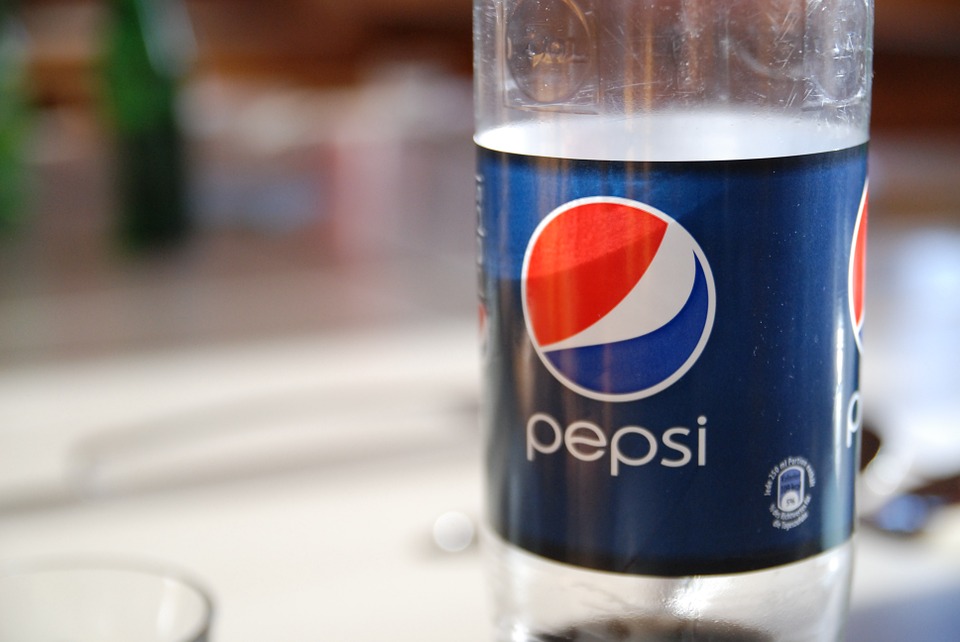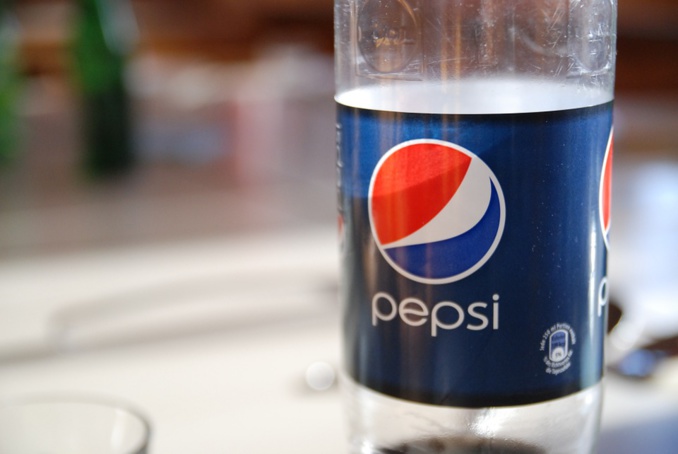The company’s particular goal is less than 100 calories per standard can of 12 fluid ounces (about 360 ml). PepsiCo believes that at least two-thirds of its drinks will be up to this quality before 2025. Now, share of low-carb Pepsi Light in the company’s product line is about 40%.
To achieve the goal, the company intends to expand range of beverages with low sugar content, as well as make changes in composition of existing drinks.
In addition, PepsiCo’s plans before 2025 include 15% more efficient use of water resources in regions experiencing problems with water supply, and 20% lower greenhouse gas emissions by 2030.
Pepsi gets 12% of proceeds from sale of the like-named drink, 25% - from sale of soda in general, the rest falls on mineral water, juices and snacks.
Earlier in September, the World Health Organization has recommended that governments introduce taxes on sugary soft drinks. France and Mexico has already made this step in hope to reduce consumption of such products and improve public health.
The industrialists have already called the WHO’s decision "discriminatory". So, who’s right?
Increase in prices of 20% can reduce consumption of sugary drinks in the same proportion, says the WHO’s report on the occasion of World Obesity Day (celebrated on October 26). Officials believe that rejection of additional sugar is the best way to combat obesity and diabetes, although these diseases can also be caused by fat and salt in processed foods.
- We call on countries to establish an effective tax on sweetened beverages in order to prevent obesity, - said Temo Waqanivalu of the WHO Department of Noncommunicable Diseases and Health Promotion.
During the period from 1980 to 2014, incidence of obesity in the world has doubled. More than 500 million people suffer from excess body weight (11% male and 15% of female population of the planet).
Annual sales of soft drinks number almost 870 billion dollars. However, if governments decide to seriously deal with obesity and diabetes, 2016 could be the year of sugar tax.
Coca-Cola Co, PepsiCo Inc. and Red Bull strongly disagree with the "discriminatory tax".
- There is no evidence that this step will lead to improvement of public health, - said International Council of Beverages Associations in a statement. - Long-term solution of the obesity problem requires an integrated approach and revision of the whole diet. However, industry of soft drinks can significantly reduce caloric content of existing products.
If government defers to the WHO’s recommendations, the new tax can spread to all kinds of sugary drinks: soft drinks, fruit drinks, syrups, energy and sports drinks, flavored milk drinks, and even 100% fruit juices.
- 42 million children under 5 years were overweight or obese in 2015, - says Francesco Branca, Director of WHO's Department of Nutrition. - Their number could rise to 11 million over the next 15 years.
WHO sets health standards and provides international recommendations to improve health of population. This does not mean that all member states immediately should raise taxes on sugary drinks, but practice shows that the organization’s words rather quickly lead to changes in legislation.
source: fortune.com
To achieve the goal, the company intends to expand range of beverages with low sugar content, as well as make changes in composition of existing drinks.
In addition, PepsiCo’s plans before 2025 include 15% more efficient use of water resources in regions experiencing problems with water supply, and 20% lower greenhouse gas emissions by 2030.
Pepsi gets 12% of proceeds from sale of the like-named drink, 25% - from sale of soda in general, the rest falls on mineral water, juices and snacks.
Earlier in September, the World Health Organization has recommended that governments introduce taxes on sugary soft drinks. France and Mexico has already made this step in hope to reduce consumption of such products and improve public health.
The industrialists have already called the WHO’s decision "discriminatory". So, who’s right?
Increase in prices of 20% can reduce consumption of sugary drinks in the same proportion, says the WHO’s report on the occasion of World Obesity Day (celebrated on October 26). Officials believe that rejection of additional sugar is the best way to combat obesity and diabetes, although these diseases can also be caused by fat and salt in processed foods.
- We call on countries to establish an effective tax on sweetened beverages in order to prevent obesity, - said Temo Waqanivalu of the WHO Department of Noncommunicable Diseases and Health Promotion.
During the period from 1980 to 2014, incidence of obesity in the world has doubled. More than 500 million people suffer from excess body weight (11% male and 15% of female population of the planet).
Annual sales of soft drinks number almost 870 billion dollars. However, if governments decide to seriously deal with obesity and diabetes, 2016 could be the year of sugar tax.
Coca-Cola Co, PepsiCo Inc. and Red Bull strongly disagree with the "discriminatory tax".
- There is no evidence that this step will lead to improvement of public health, - said International Council of Beverages Associations in a statement. - Long-term solution of the obesity problem requires an integrated approach and revision of the whole diet. However, industry of soft drinks can significantly reduce caloric content of existing products.
If government defers to the WHO’s recommendations, the new tax can spread to all kinds of sugary drinks: soft drinks, fruit drinks, syrups, energy and sports drinks, flavored milk drinks, and even 100% fruit juices.
- 42 million children under 5 years were overweight or obese in 2015, - says Francesco Branca, Director of WHO's Department of Nutrition. - Their number could rise to 11 million over the next 15 years.
WHO sets health standards and provides international recommendations to improve health of population. This does not mean that all member states immediately should raise taxes on sugary drinks, but practice shows that the organization’s words rather quickly lead to changes in legislation.
source: fortune.com



















